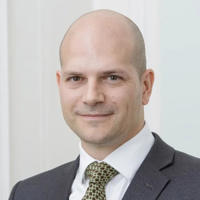PUBLIC EVENT
Join this webinar to hear about an innovative new approach to measuring the health and capability of the engineering environment across the globe. The research team from S&P Global’s Market Intelligence will present a novel new approach to measurement in the engineering profession and unveil the 2023 Engineering Capability Index, a continuation of the 2019 Global Engineering Capability Review.
Engineering plays an essential role in the quality of life of a country’s citizenry, providing the foundation for basic services to cutting edge innovations. Critically, engineering plays a key role in the prevention and reduction of harm. But how can we know where country’s stand and what steps they can take to improve? Arriving at a consensus on what gaps exist in a country’s capability and who is responsible is a perennial challenge this index seeks to address.
This webinar will present the index framework and an overview of the methodological approach and a first look at early findings from the research. The S&P Global research team will demonstrate how these data can better inform decision-makers across stakeholder types to promote best practices and identify areas of opportunity. The team will also show how the index measurements are designed to allow prioritisation of key opportunities by stakeholders, recognising the realistic limitations of policy-making in resource-constrained environments.
Recording notice
Please note this event will be recorded and published on the Royal Academy of Engineering website. Your video will be off and your account will be muted throughout the entire event. Only the speakers and presentations will be visible on your screen.
Accessibility
It is very important to the Royal Academy of Engineering that our events are accessible to all. If you have any accessibility requirements, please contact the Events team at your earliest convenience so that necessary arrangements can be made. Contact details: [email protected].
Diversity monitoring form
The Academy is committed to building an inclusive economy that works for everyone. To help us achieve this, we would like to collect soma basic anonymous data about the event attendees. If you would like to help, please complete the diversity monitoring form by logging into your user account on our website and completing ‘Update my D&I data’

Dr Karen Campbell
Dr Campbell works with clients on their data driven thought leadership initiatives around innovation, technology and entrepreneurship. This work ranges from creating indexes, KPI and benchmarking metrics, forecasting and providing scenario analysis. She was also the point of contact for SPGMI’s partnership with the Rockefeller Foundation’s 100 Resilient Cities Initiative and continues to work with cities on benchmarking their economic resilience and developing their economic resilience strategies. She was also a member on the Zurich Alliance Measuring Flood Resilience Working Group. Just prior to joining SPGMI, Karen was a Senior Economist on the World Economic Forum’s Risk Response Network team and a Senior Research Fellow at Wharton’s Risk Management and Decision Process Center. She is a Certified Management Accountant (CMA) and has been certified in Economic Measurement by National Association of Business Economists. Her research has been published in The Journal of International Trade and Economics, Journal of Business Ethics, Development Policy Review, Natural Hazards & Earth System Sciences, Scientific Reports, as well as in books and citied in the press.

Cassandra Pagan

Dr Tim Slingsby
Dr Tim Slingsby is Director of Skills and Education at the Lloyd’s Register Foundation leading their substantial portfolio of programming in the UK and globally on improving safety skills. Prior to working with the Foundation, Tim was with the British Council and several other leading organisations working in the UK and on international collaboration in public engagement with science. He has also been a researcher in industry and academia following his PhD in Molecular Genetics from the University of Leicester. He is also serving as the Chair of Maritime Charities Group.

